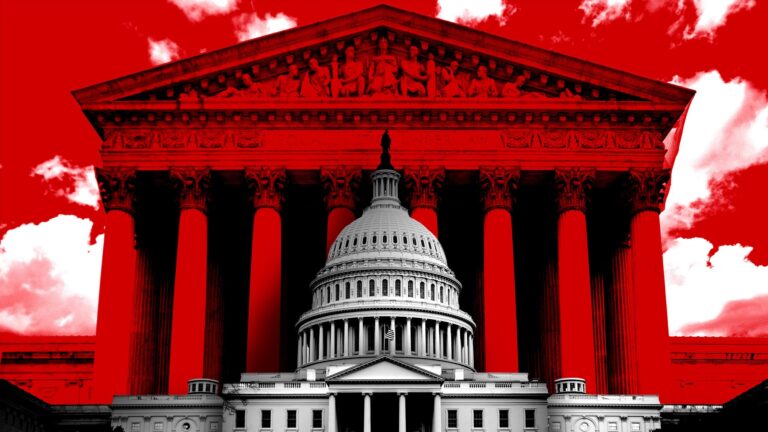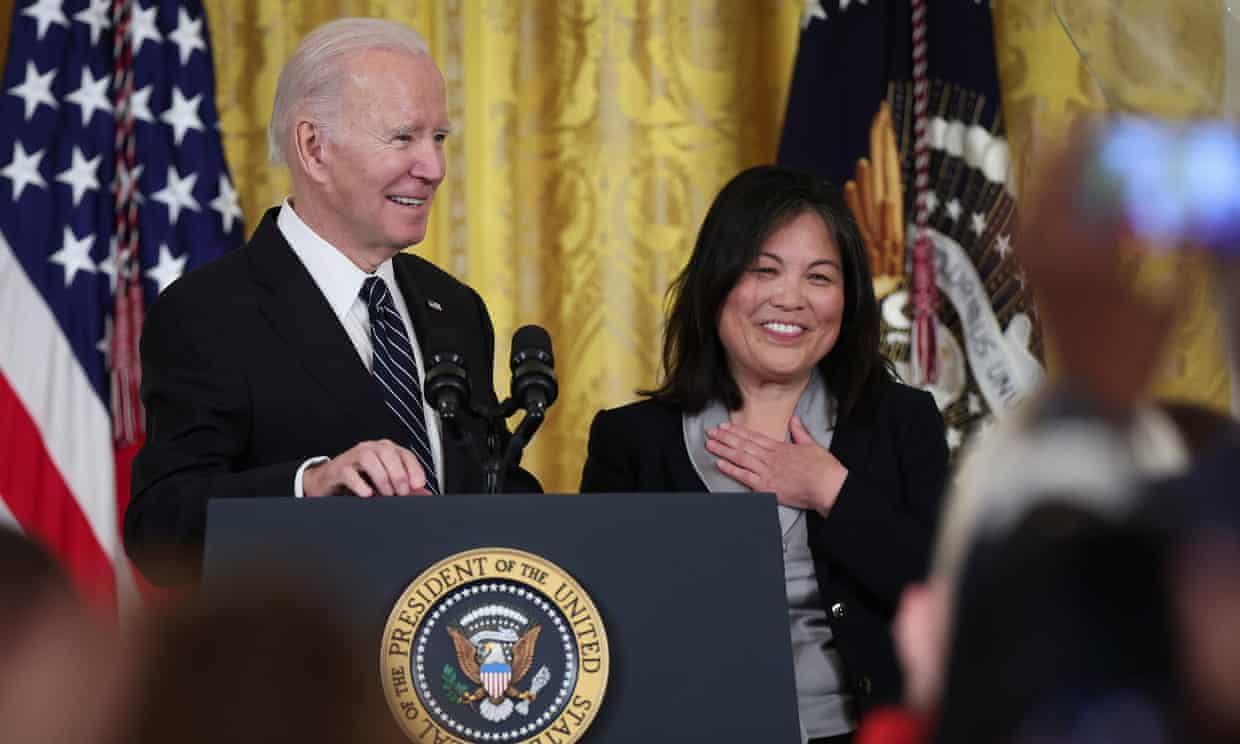A movement lawyer is posed to become Secretary of Labor
More of This

Julie Su has come a long way since she first made headlines in 1995 when she, then just 26 years old, was lead lawyer for 72 Thai workers who were essentially kept in slavery, toiling 18 hours a day at a sweatshop just outside Los Angeles.
Last week Joe Biden nominated Su to be secretary of labor, the government’s top labor position, a move that many labor, immigrant and women’s groups vigorously cheered, while a few business groups – but not many – opposed the nomination. Now some supporters fear that she might have a hard time mustering the needed votes in the Senate to be confirmed.
Su, the 54-year-old daughter of immigrants, has served as deputy labor secretary since 2021, having been narrowly confirmed 50 to 47. “I’m a huge fan,” said Liz Shuler, president of the AFL-CIO, the nation’s main labor federation. “I can’t imagine someone more prepared. She’s been working hand in glove with Marty Walsh,” the current labor secretary, who is leaving to head the National Hockey League Players’ Association.
Read the story on The Guardian
SCOTUS keeps deciding it should have more power
Less of This

Kimberly Wehle is a visiting law professor at American University.
By its own maneuvering, the modern Supreme Court has made itself the most powerful branch of government. Superior to Congress. Superior to the president. Superior to the states. Superior to precedent, procedure, and norms. In effect, superior to the people.
Most talked about in this regard, of course, is the Court’s ending of long-established reproductive rights in Dobbs v. Jackson Women’s Health Organization. But the assertion of extreme power extends well beyond the issue of abortion.
For example, in a case called TransUnion LLC v. Ramirez, the conservative majority in 2021 narrowed Congress’s Article I power to give consumers the right to sue over data deliberately mishandled by credit-reporting agencies, reasoning that the legislature can only recognize theories of harm analogous to ones that existed as a matter of “American history and tradition.” And this year, the Court is considering a handful of lawsuits by states challenging the exercise of discretion by the executive branch on the theory that federal policy affects state budgets, which could effectively enable states—and thus the Court—to function as the ultimate overseers of federal policy.
Read the story on The Atlantic
The most important transgender rights case is going before the Supreme Court
Speaking Of…

On Thursday, what could be the single most important transgender rights case in American history reached the Supreme Court.
West Virginia v. B.P.J. asks the Supreme Court to address whether any government discrimination against transgender people is inherently suspect under the Constitution, and thus must be subject to “heightened scrutiny” by the courts. If the Supreme Court reaches this question, it will be the justices’ first decision on whether the Constitution provides broad protection against anti-trans discrimination (although the Court has held that a federal statute prohibits such discrimination by employers).
The determination that a marginalized group is protected by this heightened scrutiny is one of the most consequential decisions the Supreme Court can make. While trans advocates could still lobby Congress and their state legislatures to pass trans rights legislation even if they lose the B.P.J. case, winning it would offer the immense power of being able to invoke the Constitution as a shield. B.P.J. could determine whether transgender people may demand equal treatment from each of the 50 states, even if those states are governed by anti-trans officials who enact discriminatory laws.
Read the story on Vox
The law professor who has been making racist statements for years
Perspective

Amy Wax, a law professor, has said publicly that “on average, Blacks have lower cognitive ability than whites,” that the country is “better off with fewer Asians” as long as they tend to vote for Democrats, and that non-Western people feel a “tremendous amount of resentment and shame.”
At the University of Pennsylvania, where she has tenure, she invited a white nationalist to speak to her class. And a Black law student who had attended UPenn and Yale said that the professor told her she “had only become a double Ivy ‘because of affirmative action,’” according to the administration.
Professor Wax has denied saying anything belittling or racist to students, and her supporters see her as a truth teller about affirmative action, immigration and race. They agree with her argument that she is the target of censorship and “wokeism” because of her conservative views.
Read the story on NY Times









